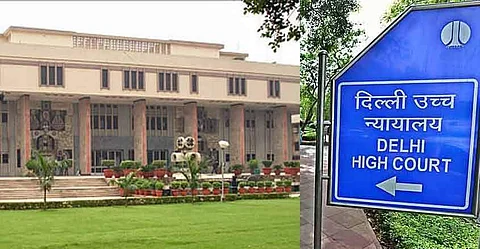

The Delhi High Court, on February 22, sought the Centre's reply on a plea challenging certain provisions of the Right to Education Act, 2009, for allegedly being arbitrary and irrational and seeking introduction of a common syllabus and curriculum for children across the country.
A Bench of Chief Justice DN Patel and Justice Jyoti Singh issued notices to the Union ministries of Education, Law and Justice and Home Affairs on the petition and listed the matter for further hearing on March 30. The PIL said existence of Sections 1 (4) and 1 (5) of the RTE Act and the absence of a common curriculum in native language leads to the fostering and perpetuation of ignorance and delays the attainment of fundamental duties.
Petitioner advocate Ashwini Upadhyay said that it is the duty of the Union to effectuate a common education system but it has failed in the fulfilment of this necessary obligation as it has simply adopted the pre-existing National Curriculum Framework (NCF) of 2005, which he said is very old.
The plea challenged the provisions under the RTE Act which excludes madrasas, vedic pathshalas and educational institutions imparting religious knowledge within its ambit. "The injury caused to children is extremely large because rather than implementing a common education system for all the children up to 14 years, the Centre inserted sections 1(4) and 1(5) to deprive educational excellence to madrasas, vedic pathshalas and educational institutions imparting religious instruction. The Petitioner submits that Sections 1(4) and 1(5) not only offend Articles 14, 15, 16, 21, 21A but are also contrary to Articles 38, 39 and 46 and Preamble," the plea said.
Section 1(4) of the RTE Act states "Subject to the provisions of Articles 29 and 30 of the Constitution, the provisions of this Act shall apply to conferment of rights on children to free and compulsory education." Section 1 (5) of the Act states "Nothing contained in this Act shall apply to Madrasas, Vedic Pathshalas and educational institutions primarily imparting religious instruction."
The plea said the prevailing system does not provide equal opportunity to all children as the syllabus and curriculum varies for each strata of society. "It is necessary to state that the purposive and harmonious construction of Articles 14, 15, 16, 21, 21A with Articles 38, 39, 46 confirms that education is a basic right of every child and the state cannot discriminate against this most important right," the plea said.
It added, "Right of a child should not be restricted only to free education, but must be extended to have equal quality education without discrimination on the ground of child's social economic and cultural background. Therefore, the court may declare Sections 1(4) and 1(5) arbitrary, irrational and violative of Articles 14, 15, 16 and 21 and direct the Centre to implement a common syllabus and common curriculum for the students of I-VIII standard throughout the country."
The petition said that a common minimum education programme for the children up to 14 years would achieve the code of common culture, removal of disparity and depletion of discriminatory values in human relations.
